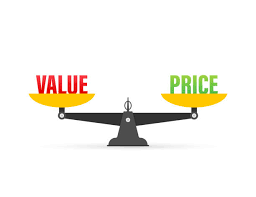
What is Captial Gains Tax on Inherited Property?
Capital gains tax on inherited property refers to the tax levied on the profit or gain you make when you sell an inherited property that has increased in value. The key factors here are the inheritance and the increase in value from when you inherited it to when you sold it.
Introduction
Capital gains tax on inherited property can feel like a tough nut to crack. It’s like wandering in a maze of legal and financial terms. But guess what? This guide is here to simplify all of that for you! We’re about to turn this tax puzzle into a walk in the park so that you can make savvy decisions with ease and confidence.
1. The Basics of Capital Gains Tax
Capital gains tax is not applied to the entire property sale price. Rather, it is applied to the “gain” or increase in value. This means that if your inherited property appreciates after you’ve received it and you sell it at that higher price, you could be responsible for paying capital gains tax.

2. The Role of the Inheritance
The inheritance aspect comes into play because the property in question wasn’t purchased but was passed down through a will or estate. Here’s the kicker: when you inherit property, its basis for capital gains tax is the fair market value at the time of the previous owner’s death, not what they initially paid. This is called a “stepped-up basis.”
Determining the Stepped-Up Basis
You’ll need to determine the stepped-up basis to avoid getting blindsided by capital gains tax on inherited property. The following sections will guide you through this.

1. How to Determine the Stepped-Up Basis
The stepped-up basis of inherited property is its fair market value at the time of the previous owner’s death. For example, if your Aunt Mabel purchased a home for $100,000, but it was worth $200,000 when she passed away, the stepped-up basis would be $200,000.
2. Importance of the Stepped-Up Basis
Understanding the stepped-up basis is critical because it directly influences the amount of capital gains tax you could potentially owe. If Aunt Mabel’s house appreciated to $250,000 by the time you sold it, you’d only owe capital gains tax on $50,000 ($250,000 sale price – $200,000 stepped-up basis), not $150,000 ($250,000 sale price – $100,000 original purchase price).
Calculating Capital Gains Tax on Inherited Property
You’ve figured out the stepped-up basis. Great! How do you calculate the capital gains tax on your inherited property?

1. Understanding Long-Term vs. Short-Term Capital Gains
The first step is understanding the difference between long-term and short-term capital gains. If you sell an inherited property within a year of inheriting it, you’ll have to pay short-term capital gains tax, which aligns with your ordinary income tax rate. If you sell it after holding it for over a year, it’s considered a long-term capital gain, and the tax rate is typically more favorable.
2. Figuring Out Your Taxable Gain
The next step is to determine your taxable gain. This is the selling price minus the stepped-up basis and selling expenses such as real estate agent fees or closing costs.
Capital Gains Tax Exclusions on Inherited Property
Now that we’ve covered the ins and outs of calculating capital gains tax, it’s time to dive into the exclusions that can help you save on your tax bill.

1. The Home Sale Exclusion
If you use the inherited property as your primary residence for at least two of the five years before you sell it, you may qualify for a home sale tax exclusion. This could exclude up to $250,000 ($500,000 for married couples filing jointly) of your capital gain from taxation.
2. Estate Tax vs. Capital Gains Tax
It’s important to note that estate tax is distinct from capital gains tax. The estate tax is based on the value of the deceased’s entire estate, while capital gains tax only applies to the increase in value of the inherited property after it was received.

FAQs on Capital Gains Tax on Inherited Property
- What is the tax rate for capital gains on inherited property? The tax rate depends on whether the gain is considered short-term or long-term. Short-term capital gains tax aligns with your regular income tax rate, while long-term rates range from 0% to 20%, depending on your overall income. If you have more questions about “Capital Gains Tax Rates on Inherited Property,” we’ve created this handy resource to help you.
- Can I avoid capital gains tax on inherited property? Some strategies to avoid or reduce capital gains tax include using the property as your primary residence to qualify for the home sale tax exclusion or donating the property to a charitable organization. We’ve written the “Top Four Ways to Avoid Capital Gains Tax” on inherited property, and it’s here for your review.
- Do I have to pay capital gains tax if I sell the inherited property immediately? Suppose you sell the inherited property immediately for a price equivalent to its fair market value at the time of the original owner’s death. In that case, you will not owe capital gains tax.
- How does the “stepped-up basis” impact capital gains tax on inherited property? The stepped-up basis can significantly lower your capital gains tax liability. It adjusts the property’s value to its fair market value at the time of the original owner’s death, meaning you only pay tax on the gain after you inherit the property.
- Do all states impose capital gains tax on inherited property? While the federal capital gains tax applies across the United States, state-level capital gains taxes vary. Some states have no additional capital gains tax, while others do. It’s best to consult with a tax professional in your state to understand the specific implications.
- Is capital gains tax on an inherited property different for residents and non-residents? Non-resident aliens are subject to federal capital gains tax on U.S. real estate, but the rate and application may differ based on tax treaties between the U.S. and the non-resident’s home country. It’s recommended to consult a tax advisor familiar with international tax law for specifics.
Conclusion
Understanding the capital gains tax on inherited property can feel overwhelming, but with the right guidance, it doesn’t have to be. Knowledge of the stepped-up basis, how to calculate your potential tax, and the available exclusions can empower you to make informed decisions. Consulting with a tax professional is highly advisable to ensure compliance with complex tax laws.

Local Honest Homebuyer
And here is an offer that is hard to refuse; reach out to us, and we’ll HELP you. We are local real estate buyers, and we can answer your questions. Check out our Google reviews, LOCAL HONEST HOMEBUYER GOOGLE REVIEWS
